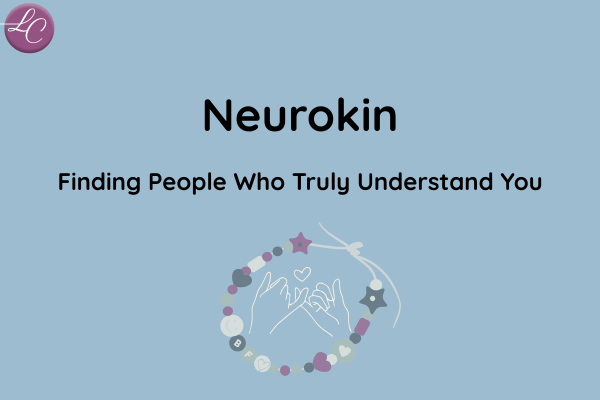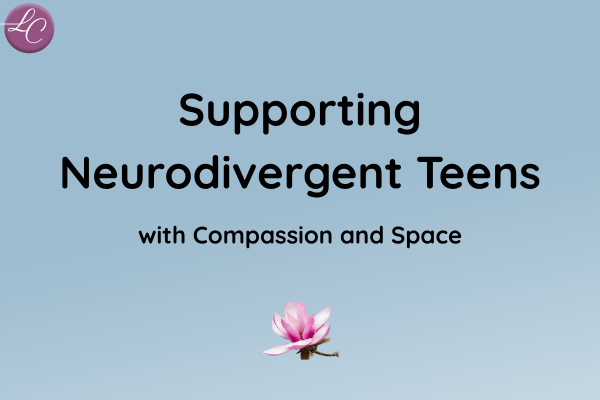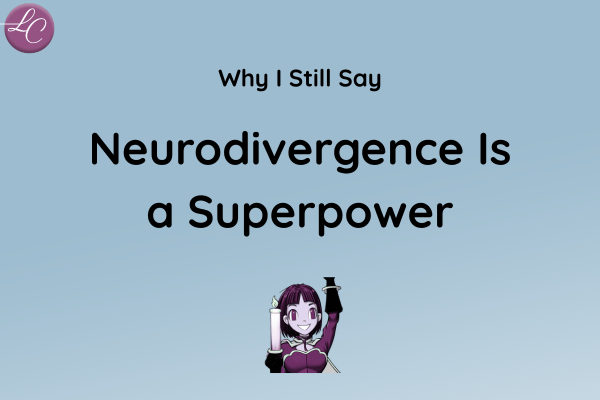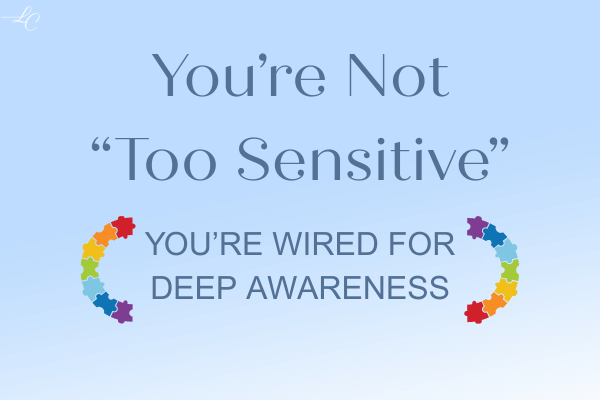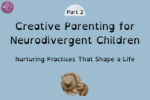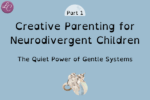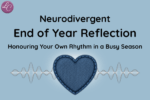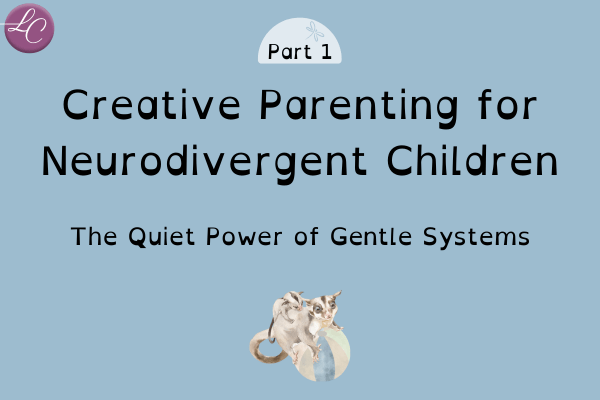
Creative Parenting for Neurodivergent Children – Part 1
Creative Parenting for Neurodivergent Children
The Quiet Power of Gentle Systems
When people talk about parenting neurodivergent children, the conversation often swings between two extremes — rigid control or complete chaos.
What rarely gets named is the third way — creative structure.
Not imposed.
Not authoritarian.
But quietly intelligent systems that reduce friction in everyday life and allow sensitive nervous systems to settle.
I didn’t grow up with parenting manuals or behaviour charts.
What I grew up with were small, imaginative systems my Mum invented because the usual approaches didn’t work for us.
At the time, they simply felt like how our household functioned.
Looking back now, I can see how deeply regulating they were.
They didn’t try to change who we were. They changed the environment around us.
When the World Is Too Loud, Systems Become Safety
As neurodivergent children, my brother and I bickered a lot.
Not because we were defiant or difficult — but because everything felt amplified.
Fairness mattered intensely. Predictability mattered even more.
Small decisions carried emotional weight far beyond what adults often expect.
Rather than intervening emotionally every time, Mum stepped sideways and created systems that removed the heat altogether.
Calendar days were one of those systems.
Odd days were mine. Even days were his.
On your day, you chose. On the other day, you waited.
What this quietly dissolved was the endless negotiation that drains nervous systems dry.
There was no argument to win, no injustice to correct in the moment. Tomorrow already existed. That single fact did something profound: it let the body stand down.
For neurodivergent children, knowing when your turn is can be more regulating than getting your way.
Predictability Without Punishment
Another system sat on the fridge: a simple list of expectations and consequences.
Pocket money wasn’t automatic. It was earned.
And if you crossed a clearly defined boundary, there was a clearly defined outcome.
There were no –
- Lectures,
- Raised voices, or
- Emotional withdrawal.
What this taught us wasn’t fear — it was orientation.
We knew where we stood.
The ground didn’t shift beneath us depending on Mum’s mood or exhaustion level.
That kind of consistency builds trust in the world itself.
For a sensitive nervous system, unpredictability is often more distressing than consequence.
Humour as Regulation
Some of Mum’s systems were quietly practical.
Others were playful.
The “Ejector Seat” in the car was pure theatre.
There was no actual button, of course — but as children, the possibility was enough.
What mattered wasn’t the threat, but the tone. It was light. Almost conspiratorial.
Boundaries delivered with humour land very differently in the body.
Where fear tightens, play opens.
And open nervous systems regulate faster.
Fairness You Can Feel
“One divides, the other chooses” might be one of the most elegant parenting tools ever invented.
Not because it explains fairness — but because it embodies it.
You learn quickly when fairness lives in your own hands.
There was no moralising. Just lived experience.
These Systems Were Never About Control
None of these approaches were designed to make us compliant.
They were designed to make daily life workable for children with big emotions, strong justice sensitivity, and nervous systems that reacted quickly to stress.
They created:
- Fewer emotional spikes
- Less sensory overload
- More internal stability
- A sense that the world was coherent, not arbitrary
That matters more than we often realise.
Watch the Video: Creative Parenting for Neurodivergent Children – Part 1
In this video, I share some of the amazing strategies that my own mother created to navigate life with her neurodivergent kids! (Part 2 will be out soon – stay tuned.)
A Closing Reflection
If you’re an adult reflecting on your own childhood, you may recognise this feeling — that some unseen intelligence held things together for you.
And if you’re parenting now, perhaps you’re already inventing your own quiet systems without naming them as such.
You don’t need to replicate anyone else’s approach.
You only need to listen closely to what your own and your child’s nervous system is asking for.
Gentle structure can be a form of love.
Exploring Further…
If you’re carrying a sensitive nervous system — whether shaped in childhood or through ongoing caregiving — my work is designed to meet you gently where you are. Read more here.
- Blog post – the second part to this series is HERE
- Service – nervous system support for adults carrying emotional load
- YouTube channel – Different… And Loving It!

